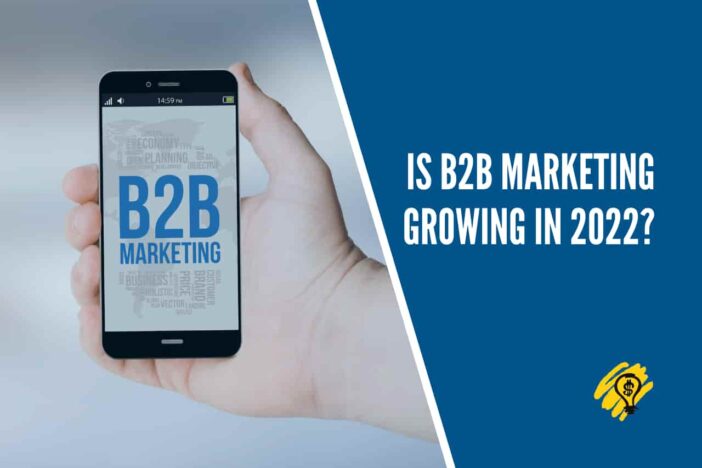Digital marketing is taking the world by storm, in particular the B2B niche. As marketing technologies grow increasingly effective and complex, some intuitively believe that the B2B marketing world is leveling out in terms of growth.
However, the evidence points the other way, to an area seeing progressive growth. In this guide, we take a look at some of the trends behind that growth, to help you understand the ins and outs of B2B marketing as we head further into 2022. Thank you to the Headley Media team for their expert insights and data points which allowed us to put this guide together.
Data analysis developments
As an increasing number of marketing tools become widely accessible, the amount of data available to marketing teams is astounding. Automated analysis tools allow for further, real-time insights into what works and what needs tweaking.
This has, in turn, led to an approach to marketing that’s based on a sophisticated level of targeting, as opposed to blindly putting content out into the ether. That higher degree of precision gives confidence to clients and allows marketing teams to fulfill their role more effectively with fewer resources.
Focusing on customers
Traditionally, in marketing, a significant focus has been placed on understanding the competition. While focus groups are nothing new, attempts to understand customer needs have been somewhat lacking; thankfully, this trend is starting to change. CX is becoming a dominant factor in both design and more general marketing strategies.
Companies are increasingly trying to develop a culture that’s customer-focused, as opposed to participating in a somewhat blind back and forth with competitors, thereby side-lining customers. Understanding customer intention and behaviour is complex, and will likely continue to develop as a theme within B2B marketing for some time to come.
Increasing budgets
While marketing budgets fell during the pandemic, from an average of 11% to 6.4% of revenue from 2020 to 2021, they’re steadily rising once more as we enter 2022. After a period of general stagnation, businesses are recognising that a significant kickstart is necessary to get things back to prior levels. Those increasing budgets are leading to an all-round growth in B2B marketing as the year progresses, providing a great opportunity for both old-hats at marketing and those who are new to the game.
Strategic approach
Digitisation has had a twofold shift within B2B marketing. On the one hand, it’s made it easier than ever before to target appropriate audiences. However, as a result of that, competition between companies to effectively tap into those audiences is higher than it’s ever been. As a result, a focus on effective strategy is at an all time high; four of these strategic themes, identified by Gartner, are laid out below:
Customer Journey Orchestration:
The experience of the customer, when relating to a specific business, should be considered in its entirety. From initial exposure to post-purchase customer support, each stage of that experience should be tweaked and optimised to ensure that no single part of the business can detrimentally affect others who are performing optimally.
Marketing’s shifting role in the enterprise:
As the business world turns online, developing a presence is no longer as passive as simply having a shop in the right district. As a result, the role of the marketer has changed significantly, going from a potentially optional extra to an absolute necessity for the success of a wide range of businesses. As marketing is considered increasingly integral to general business operations, marketing specialists will be able to restructure their position within the business world.
Strategic brand management:
Brand management has become more and more intricate, with an increasing number of tools available to assess a brand’s position in the market and appropriately manage brand-related assets. Brand management will become increasingly important as many markets continue to be saturated with competition, with brand identity often offering one of the most obvious differentiating factors between competing companies.
Change and volatility management:
If the previous few years have shown us anything, it’s that volatility is one of the few certainties in the current global market. Building contingency plans is essential to all elements of business, and B2B marketing is no different. Companies are recognizing this, in turn seeking advice from marketing specialists in crisis response and mitigation. An ever more complex world will require more individuals to guide through those intricacies, including in B2B marketing.



